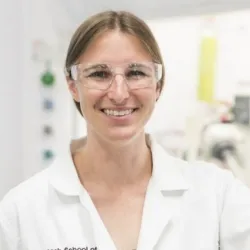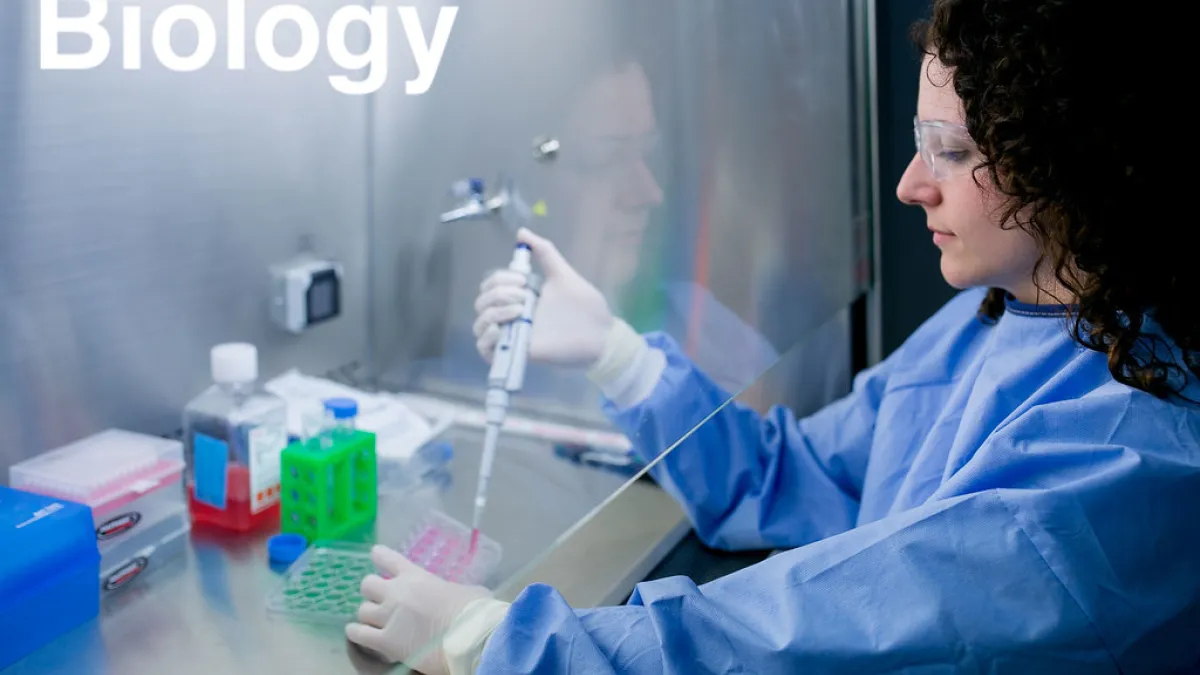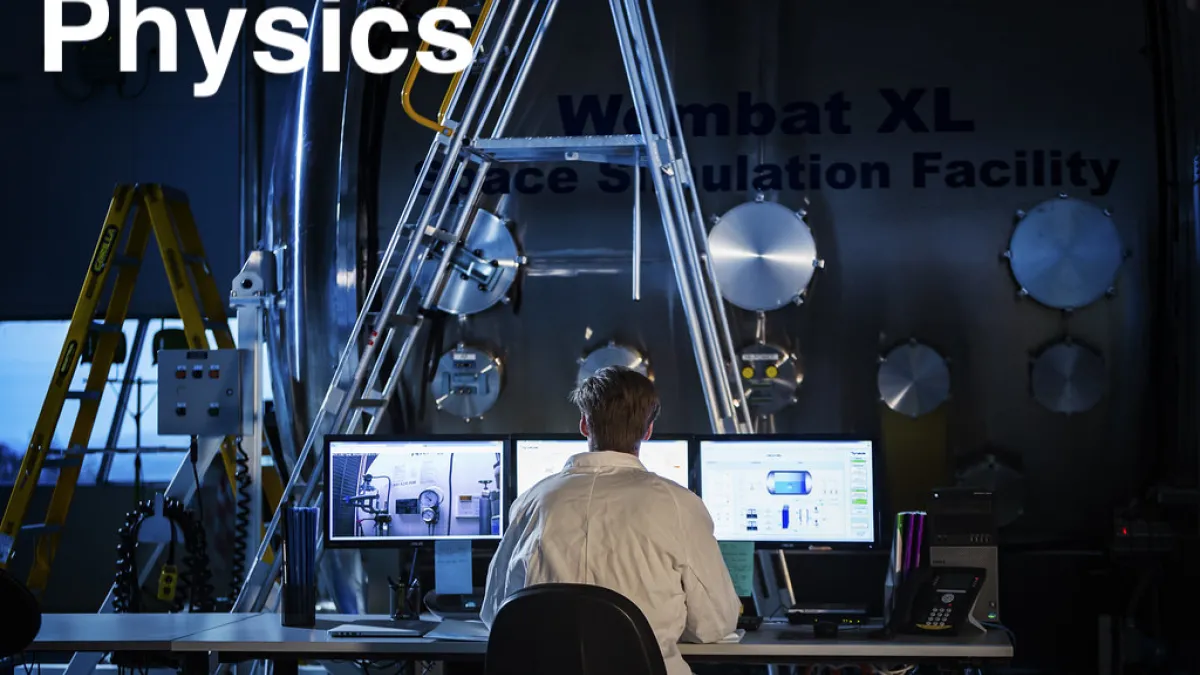The Shandong University (SDU) and The Australian National University (ANU) Joint Science College (JSC) at Shandong University’s Weihai campus is a ‘Sino-Foreign Cooperative Educational Institution’ partnership approved by the Chinese Ministry of Education.
About the Joint Science College
The SDU – ANU Joint Science College is a unique partnership where ANU and SDU have come together to create a world-class learning opportunity for students. JSC students will acquire a strong fundamental education in various science discipline areas in China, which will include SDU courses taught by some of the ANU world-leading scientists, and then be given an opportunity to come to ANU to undertake advanced study in their chosen discipline area.
Eligible JSC students will be able to undertake a customised ‘3+1+1’ model of study where they will study at SDU for the first three years followed by at ANU for the final two years. Upon successful completion of their studies at ANU, such students will be eligible to receive two degrees, Bachelor of Science and Master of Science, from the ANU. In addition, Shandong University may also award an SDU Bachelor of Science degree to students that meet SDU’s requirements.
Key Facts
-
Areas of study: Biology, Chemistry, Mathematics and Physics
-
2 ANU Degrees: Bachelor of Science and Master of Science
-
3 years at Shandong University, followed by 2 years at ANU
-
Higher degree and other postgraduate programs (for example, Masters (Advanced), MPhil, or PhD) may also be available
Discipline Areas
Videos and links below provide an overview of various ANU Research Schools and their engagement in the JSC.
ANU Bachelor and Master degrees
3+1+1 articulation model
Details of the 3+1+1 articulation arrangement
|
SDU degrees |
ANU vertical double degree pathways |
ANU credit |
Conditions |
|
Bachelor of Science with a major in Biological Science |
ANU Bachelor of Science with a major in either 'Quantitative Biology' or 'Evolution, Ecology and Organismal Biology' & one of the following ANU Master of Science program |
96 units (equivalent to 2 years) |
Students must successfully complete three years of full-time study or equivalent in an SDU Bachelor degree offered through the SDU-ANU Joint Science College with a major in ‘Biological Science’, with a specific set of SDU courses as outlined in the agreement between ANU and SDU, and with a weighted average mark of 75% or greater across all courses in the SDU Bachelor degree. Students must also satisfy the ANU English language requirements.
Students may commence their study at ANU in either first or second semester. |
|
Bachelor of Science with a major in Applied Chemistry |
ANU Bachelor of Science with a major in Chemistry & ANU Master of Science in Materials Science |
96 units (equivalent to 2 years) |
Students must successfully complete three years of full-time study or equivalent in an SDU Bachelor degree offered through the SDU-ANU Joint Science College with a major in ‘Applied Chemistry’, with a specific set of SDU courses as outlined in the agreement between ANU and SDU, and with a weighted average mark of 75% or greater across all courses in the SDU Bachelor degree. Students must also satisfy the ANU English language requirements.
Students may commence their study at ANU in either first or second semester. |
|
Bachelor of Science with a major in Applied Mathematics |
ANU Bachelor of Science with a major in Mathematics & ANU Master of Science in Mathematical Sciences |
96 units (equivalent to 2 years) |
Students must successfully complete three years of full-time study or equivalent in an SDU Bachelor degree offered through the SDU-ANU Joint Science College with a major in ‘Applied Mathematics’, with a specific set of SDU courses as outlined in the agreement between ANU and SDU, and with a weighted average mark of 75% or greater across all courses in the SDU Bachelor degree. Students must also satisfy the ANU English language requirements.
Students may commence their study at ANU in either first or second semester. |
|
Bachelor of Science with a major in Applied Physics |
ANU Bachelor of Science with a major in Physics & one of the following ANU Master of Science program |
96 units (equivalent to 2 years) |
Students must successfully complete three years of full-time study or equivalent in an SDU Bachelor degree offered through the SDU-ANU Joint Science College with a major in ‘Applied Physics’, with a specific set of SDU courses as outlined in the agreement between ANU and SDU, and with a weighted average mark of 75% or greater across all courses in the SDU Bachelor degree. Students must also satisfy the ANU English language requirements.
Students may commence their study at ANU in either first or second semester. |
Meet some of your teachers

Associate Professor Maja Adamska, Associate Director Education, Research School of Biology
With special interest in embryology and evolutionary biology, Maja Adamska studied at the Jagiellonian University in Krakow, Poland. She moved to Germany to work on function of homeobox genes in inner ear development, using a variety of vertebrate models from medaka fish to mice in her PhD project. During postdoctoral work at the University of Michigan she followed complex crosses of mouse mutants to reveal genetic interactions involved in limb patterning.

Professor Paul Francis, Physics and Astronomy & Astrophysics first year coordinator
Paul is an ANU Distinguished Educator and a winner of the Australian Award for University Teaching, Award for Teaching Excellence. His research interests include interactive teaching methods, online education, Lyman-alpha blobs and quasars. He describes the goal of his teaching as: helping students realise what an absolutely amazing and wondrous universe they live in, and equipping them with the confidence and skills to make something of its limitless opportunities.

Associate Professor Lara Malins, Senior Lecturer, Research School of Chemistry
Lara Malins completed her PhD at University of Sydney with Professor Richard Payne on the development of new peptide ligation strategies. Upon completion of her postgraduate work, Lara served as a National Institutes of Health (NIH) postdoctoral research fellow in the laboratory of Professor Phil Baran at The Scripps Research Institute, developing synthetic methods for the targeted modification of peptides. She was appointed Research Fellow at the Research School of Chemistry in November 2017 and currently holds an Australian Research Council Discovery Early Career Researcher Award (DECRA).

Dr Noah White, ANU Mathematical Sciences Institute
Noah is a mathematician at ANU working at the intersection of algebra, geometry and combinatorics with much of my work being inspired by physics. Prior to ANU, Noah completed his PhD at the University of Edinburgh and was a postdoc at UCLA. Much of his research focuses on examples of physical systems of particles (such as spin chain models, or some classical integrable models) whose motion produce mathematical phenomena which can be used to prove results in algebra, specifically representation theory.
Careers in science
The Australian National University has been ranked as the top university for graduate employability in Australia in the Global University Employability Ranking 2020. An ANU science degree will give you the skills that are important in every workplace: an inquiring mind, attention to detail, familiarity with data and technology, as well as an analytical approach to problem solving and innovation. You will graduate with a qualification recognised globally as one of the best in the world. Doors will open for you, in your career or in your further education, as you join our network of respected and successful alumni. See below, the numbers speak for themselves.
ANU grads in top 3 most employable in Australia
86% of our undergraduate students find employment within one year of graduation.
93% of our postgraduate students find employment within one year of graduation.
Data source: The Times Higher Education Global University Employability Ranking 2018
Our grads go everywhere
ANU science graduates are finding careers in all kinds of industries. Within 4 months of graduating, 63% of our grads reported being employed in the public sector, 28% in the private sector and 9% in the not-for-profit sector.
Data source: 2018 GOS-Graduate Labour Force Report
Our grads are career-ready
Our science degrees will give you the skills to prepare you for work. 80% per cent of our grads reported they were “very well” or “well” prepared for employment. With these skills, you’ll be ahead of the competition when it comes to finding a job.
Data source: 2018 GOS-Graduate Labour Force Report






















